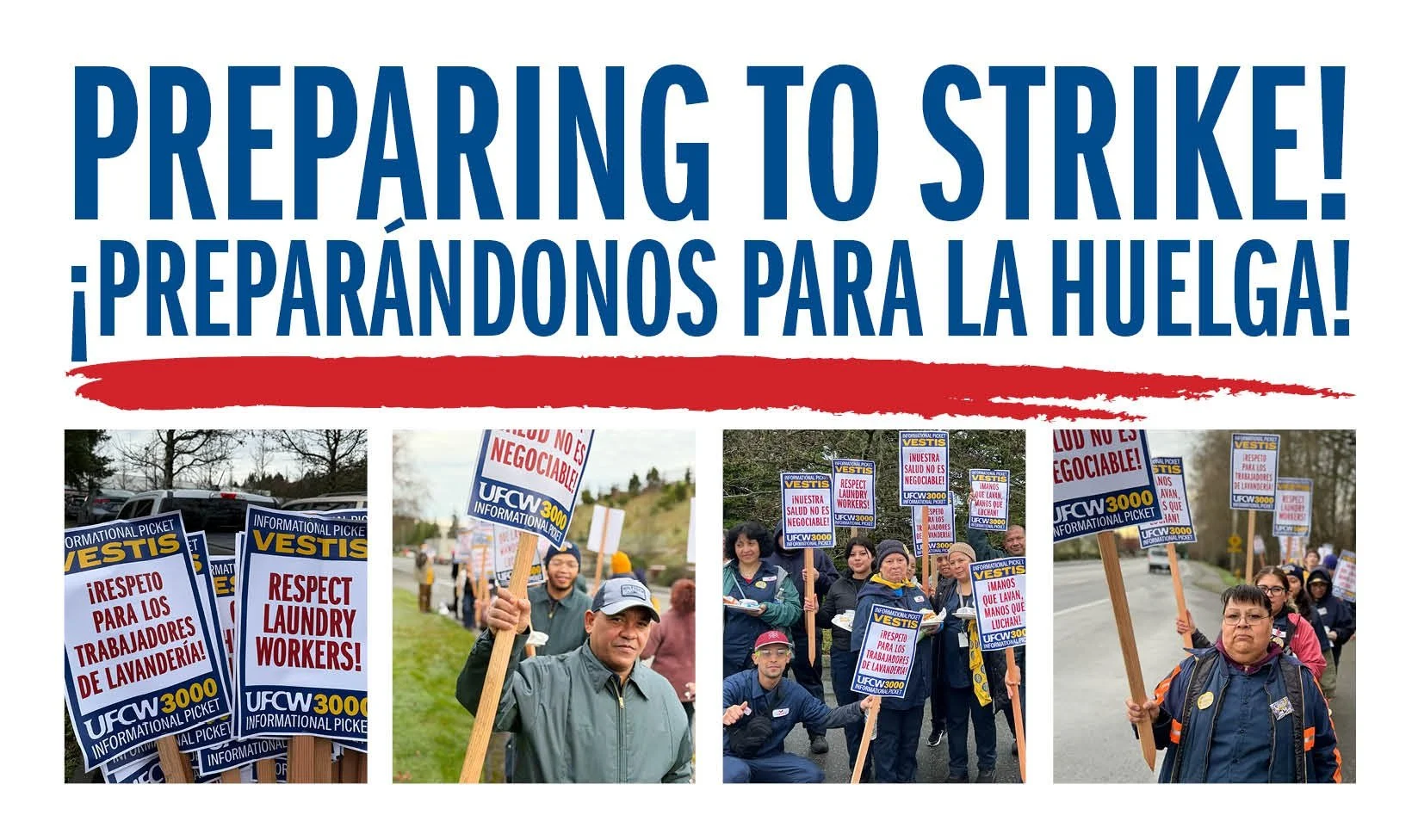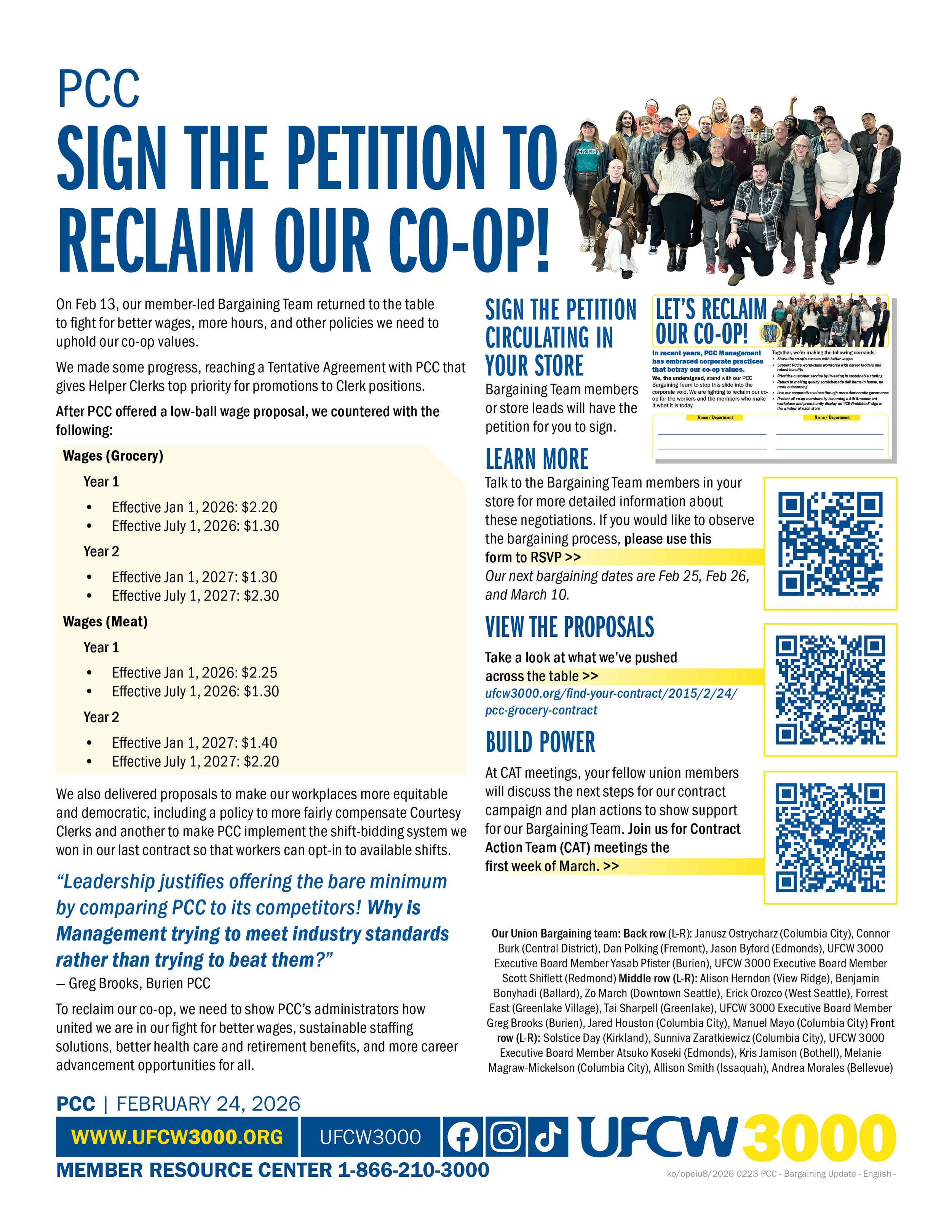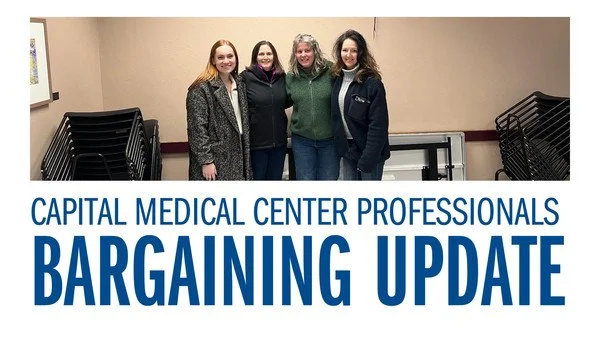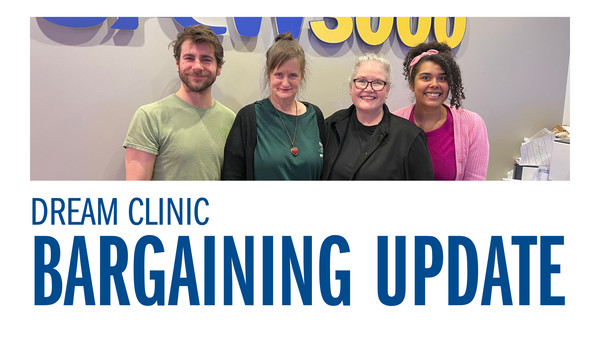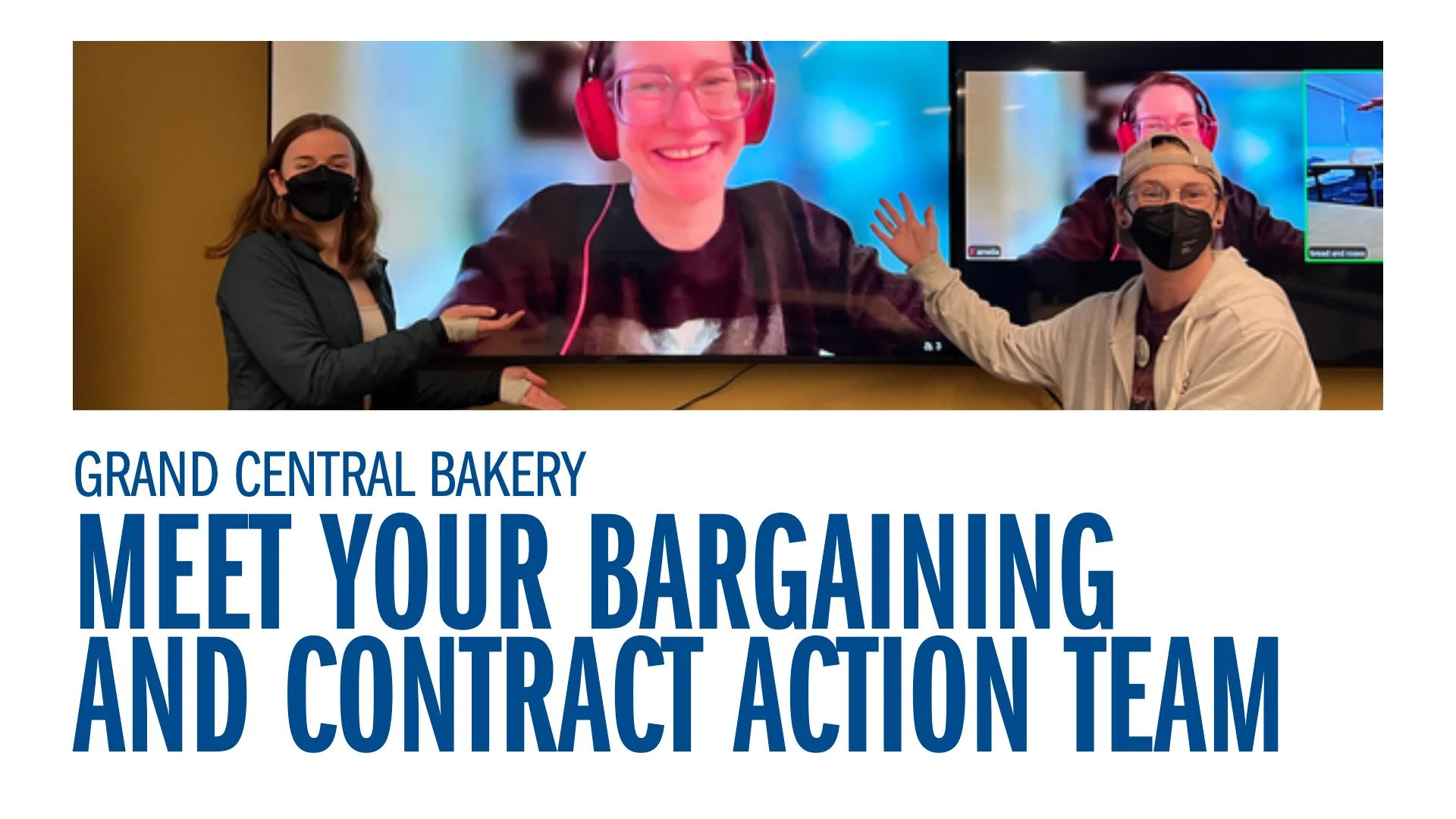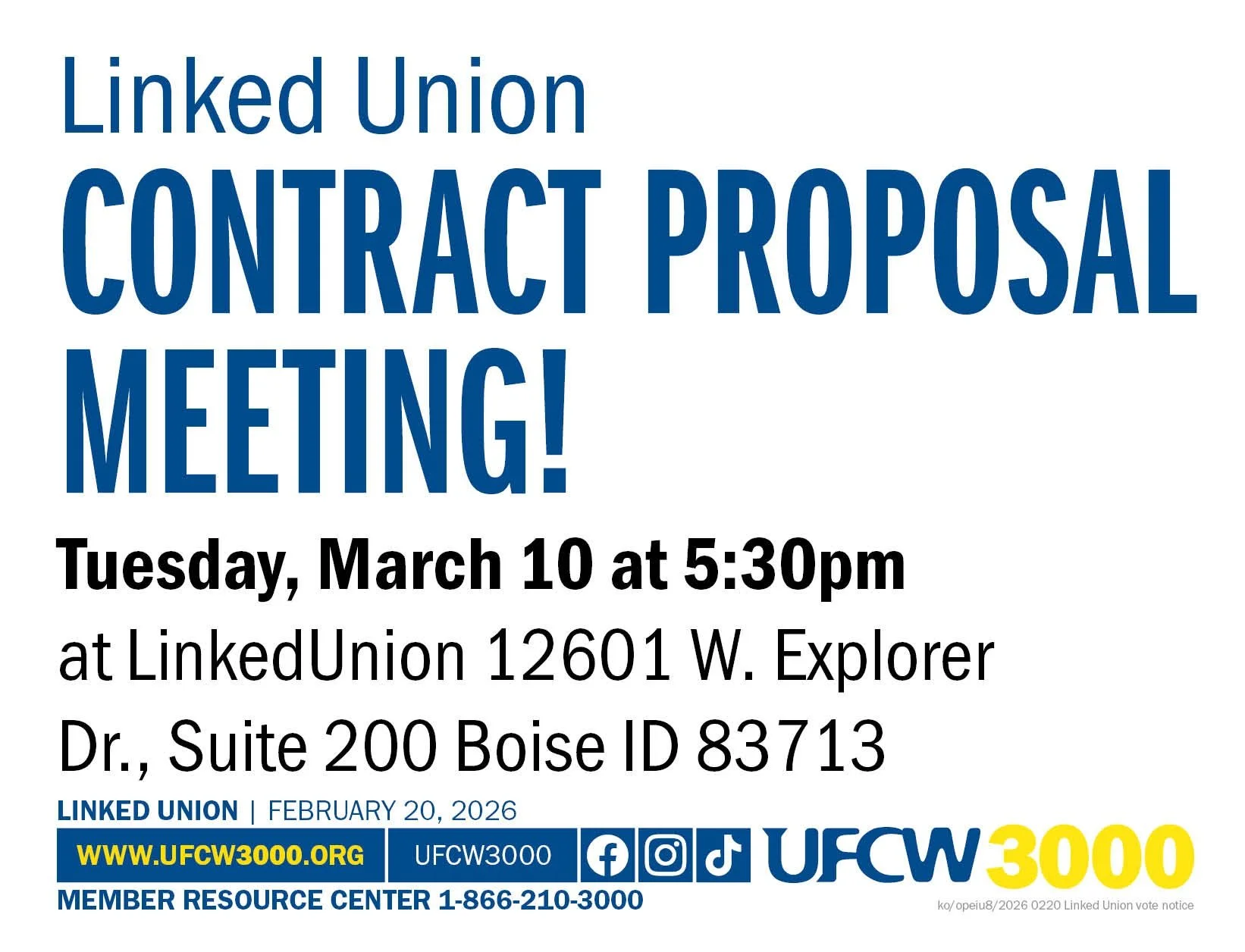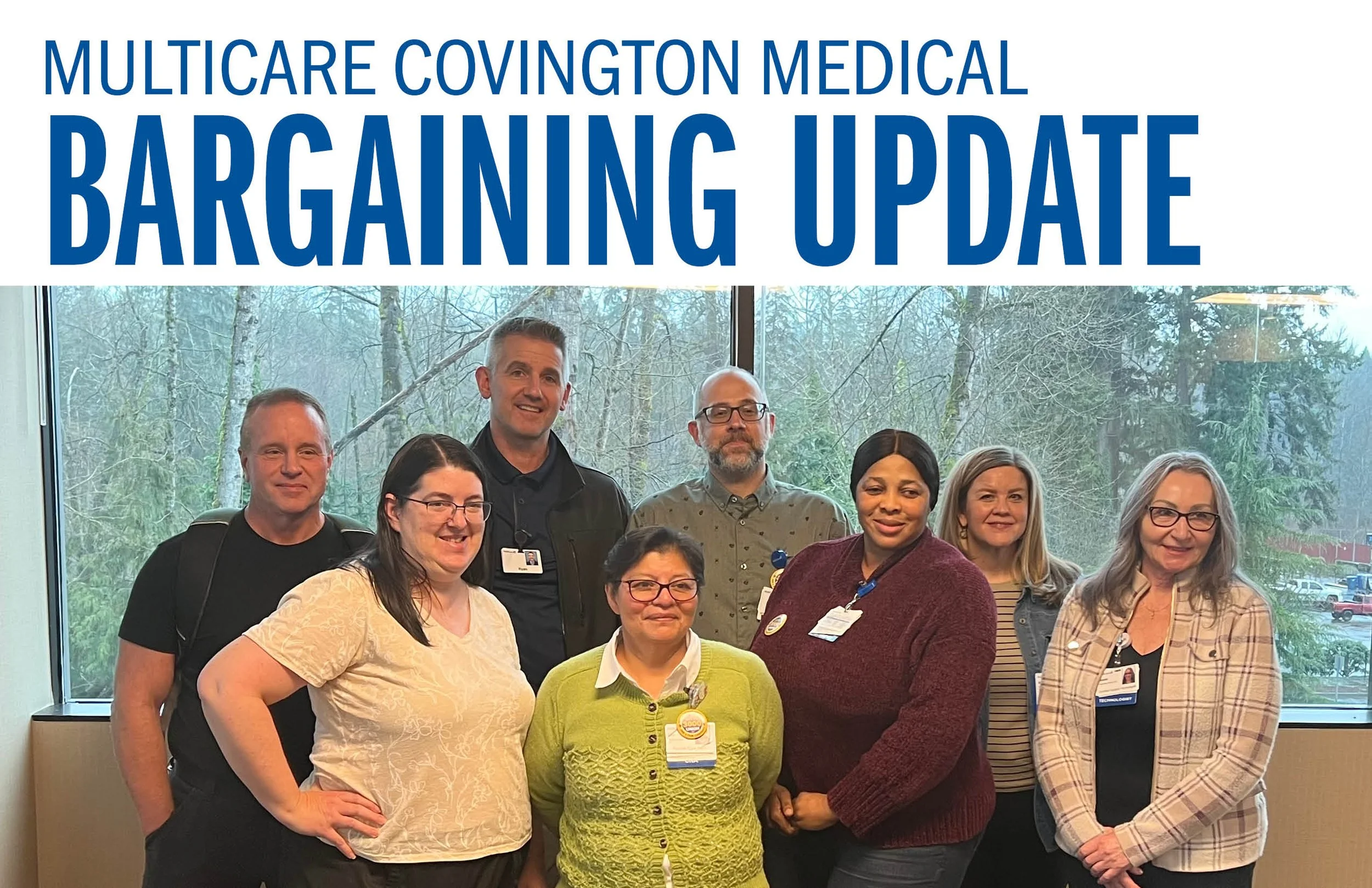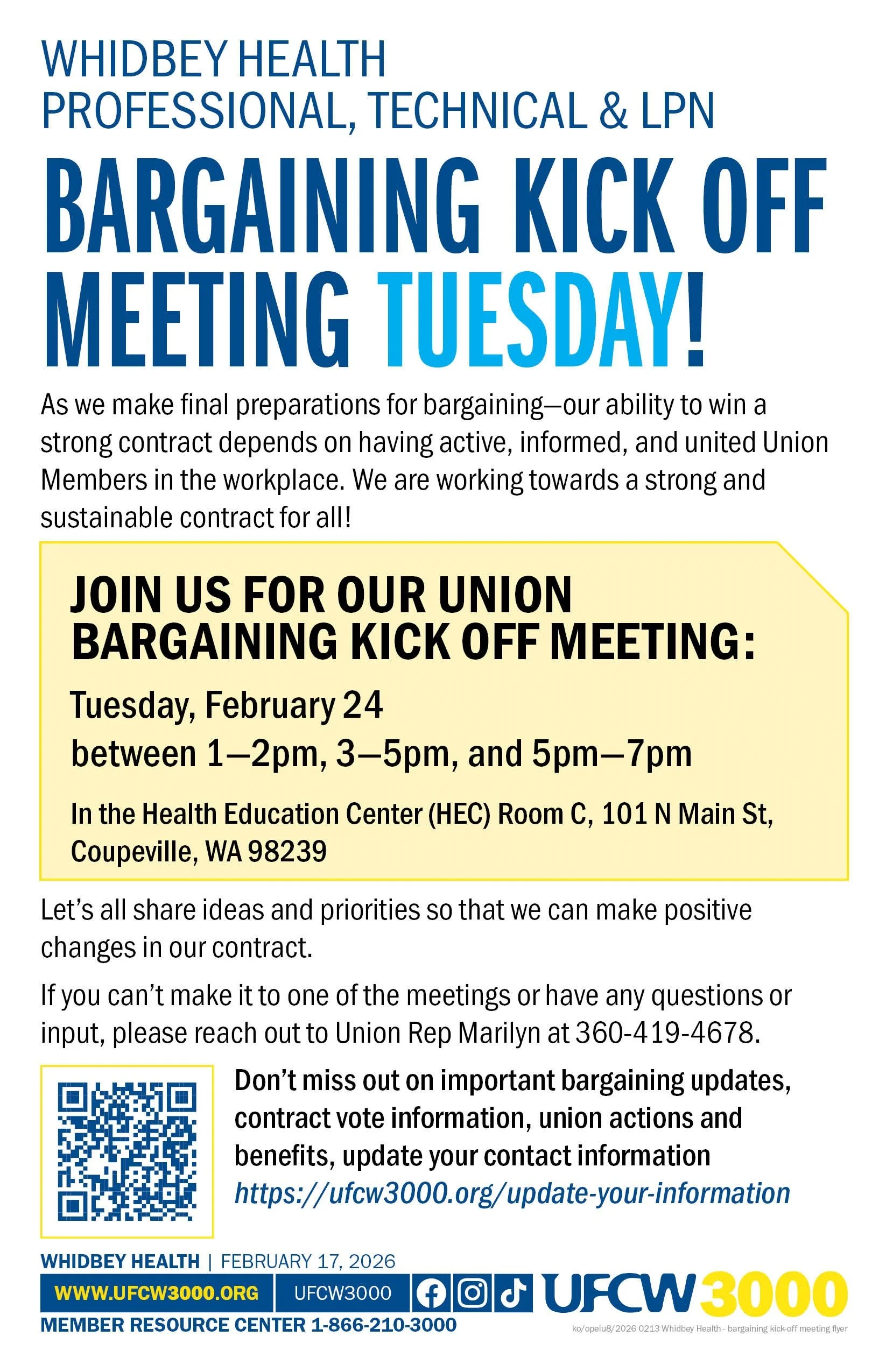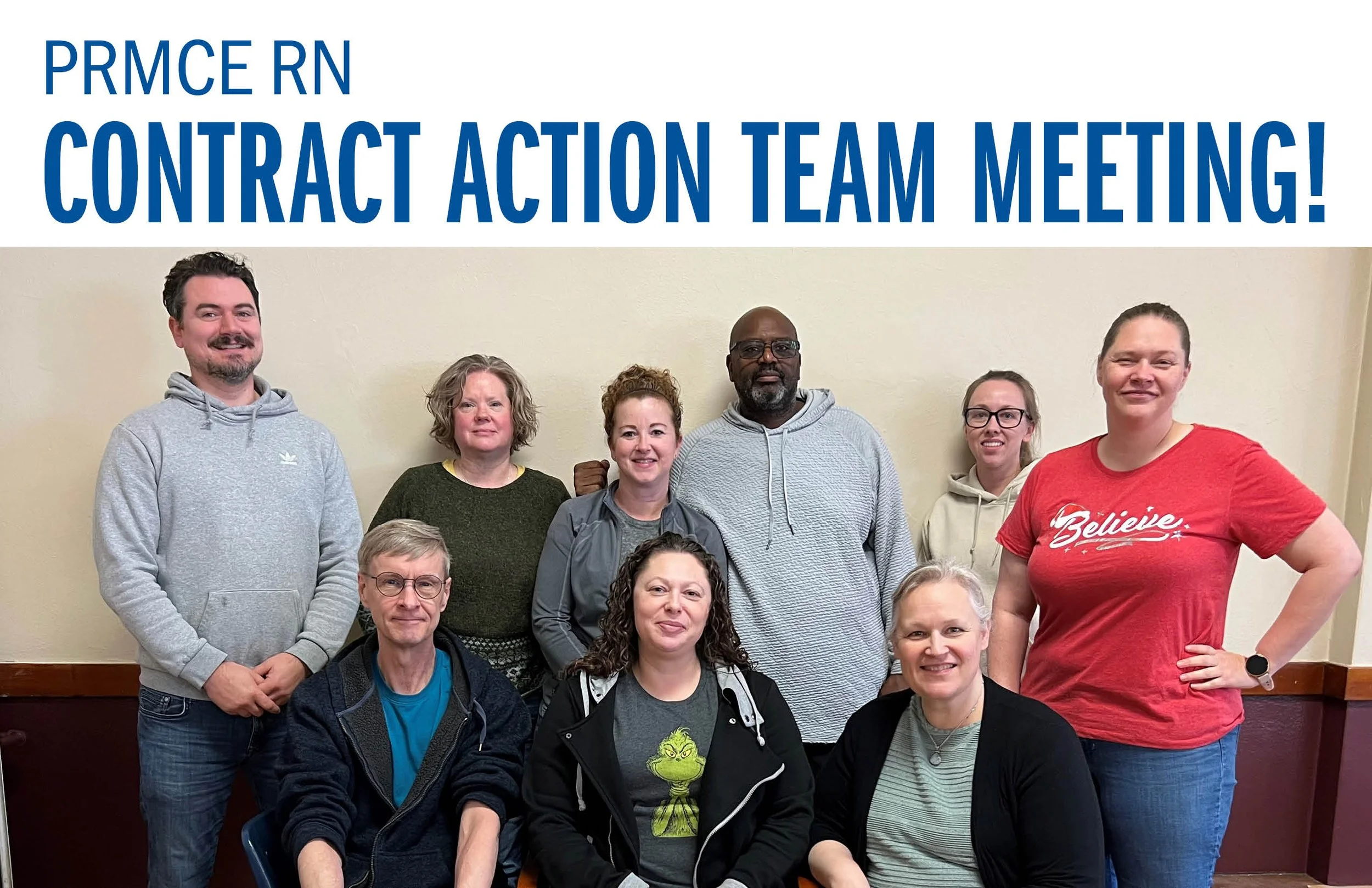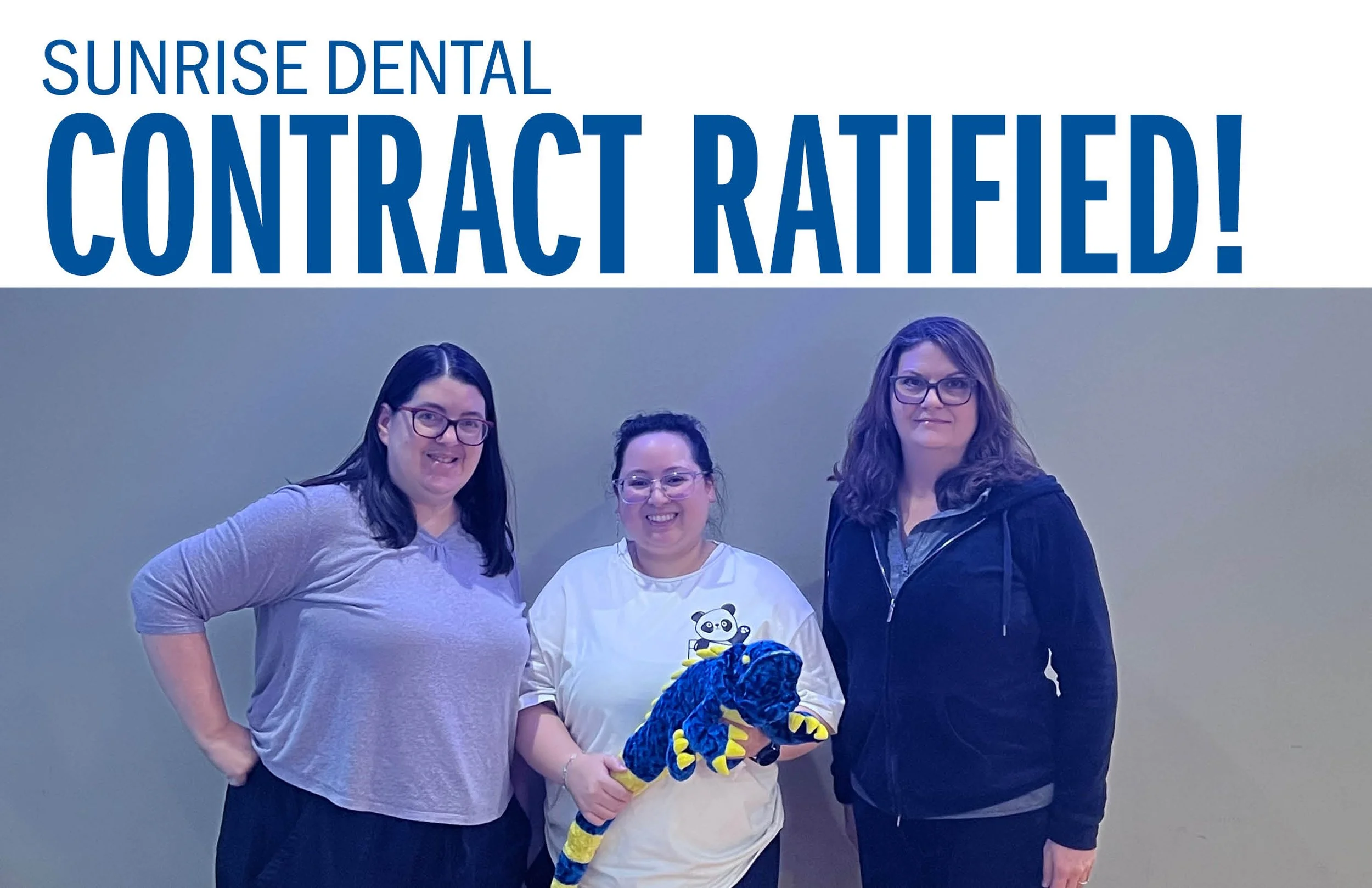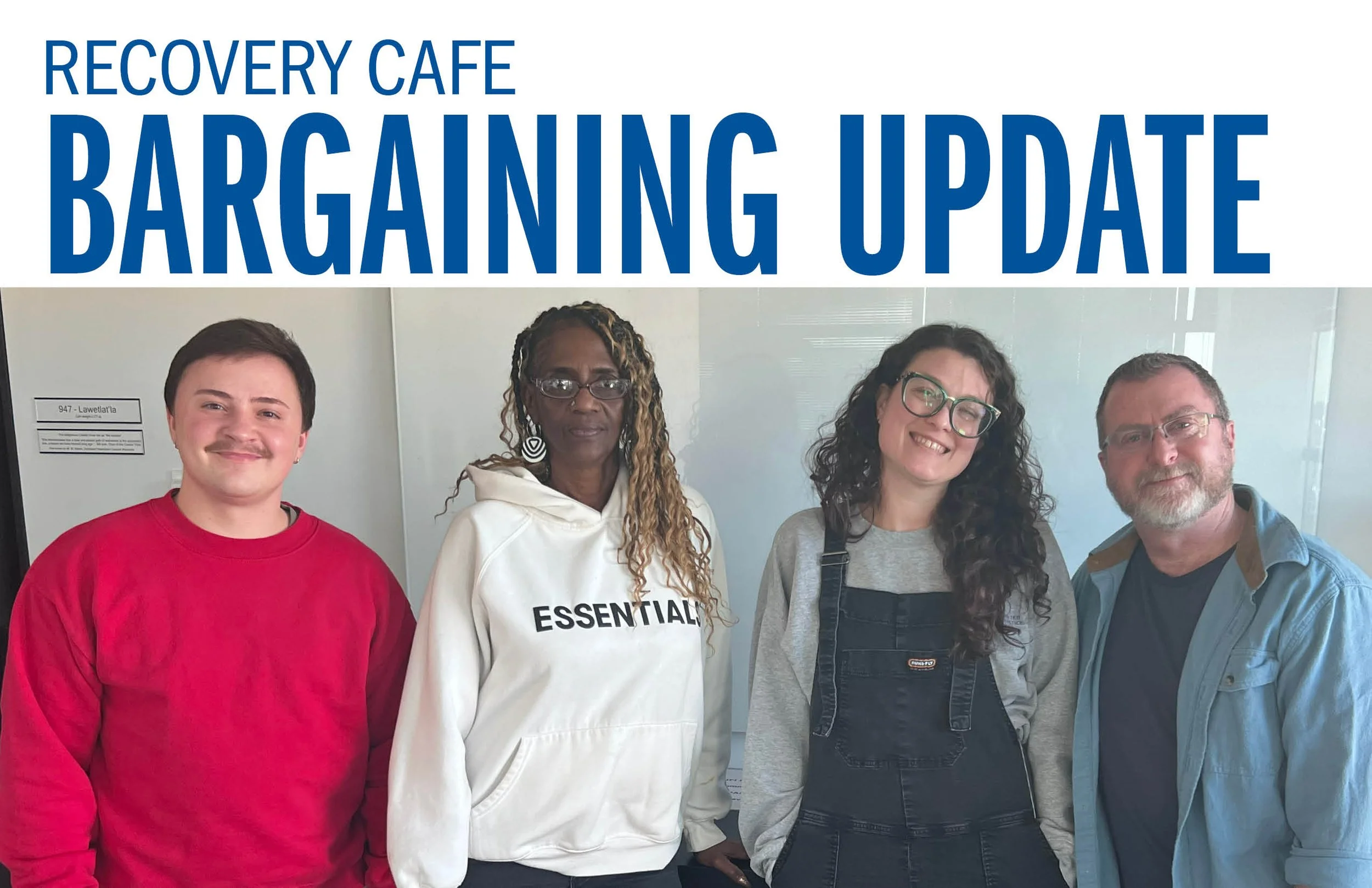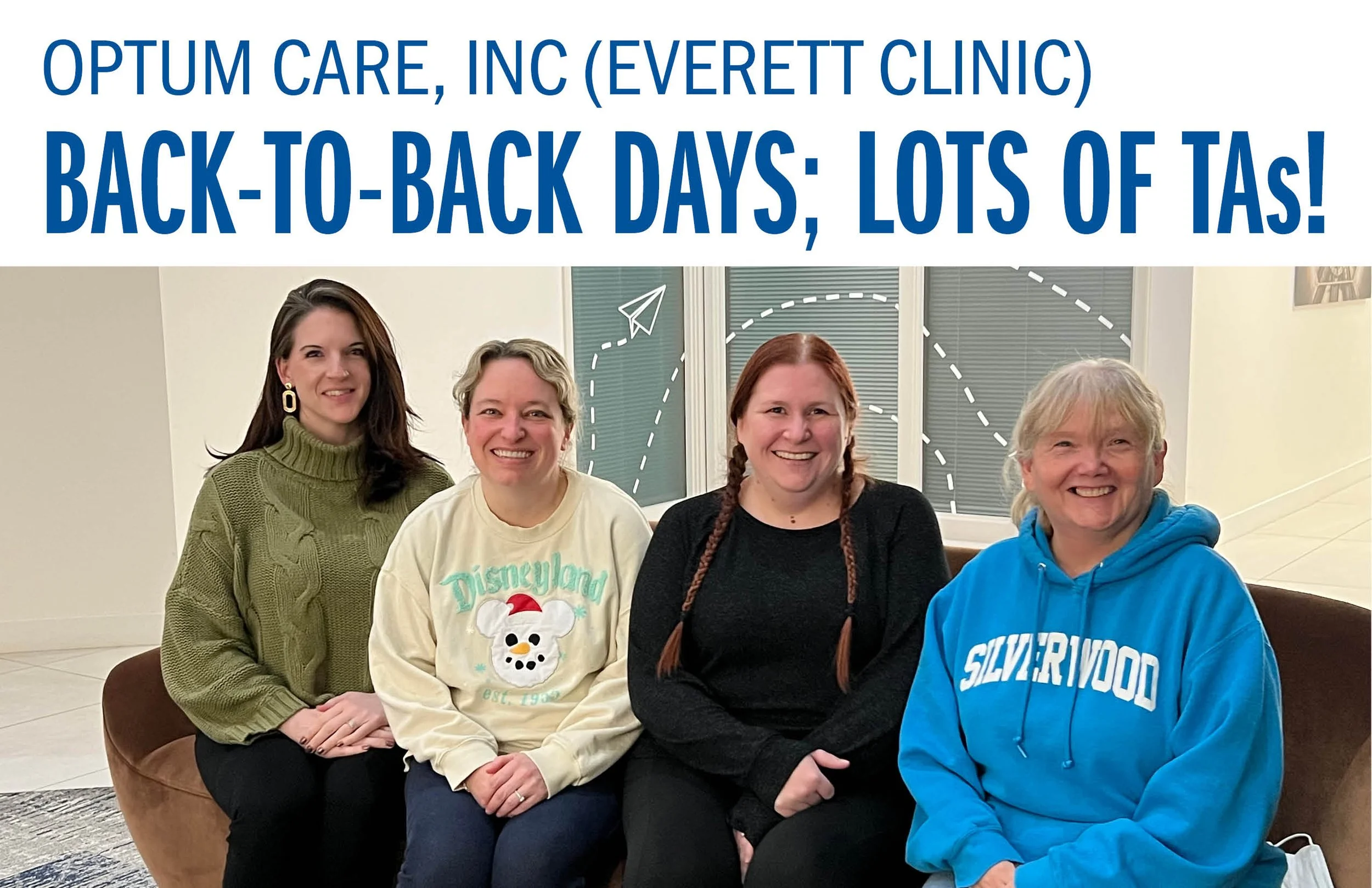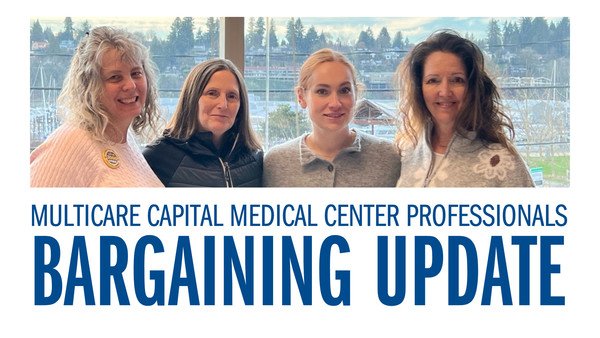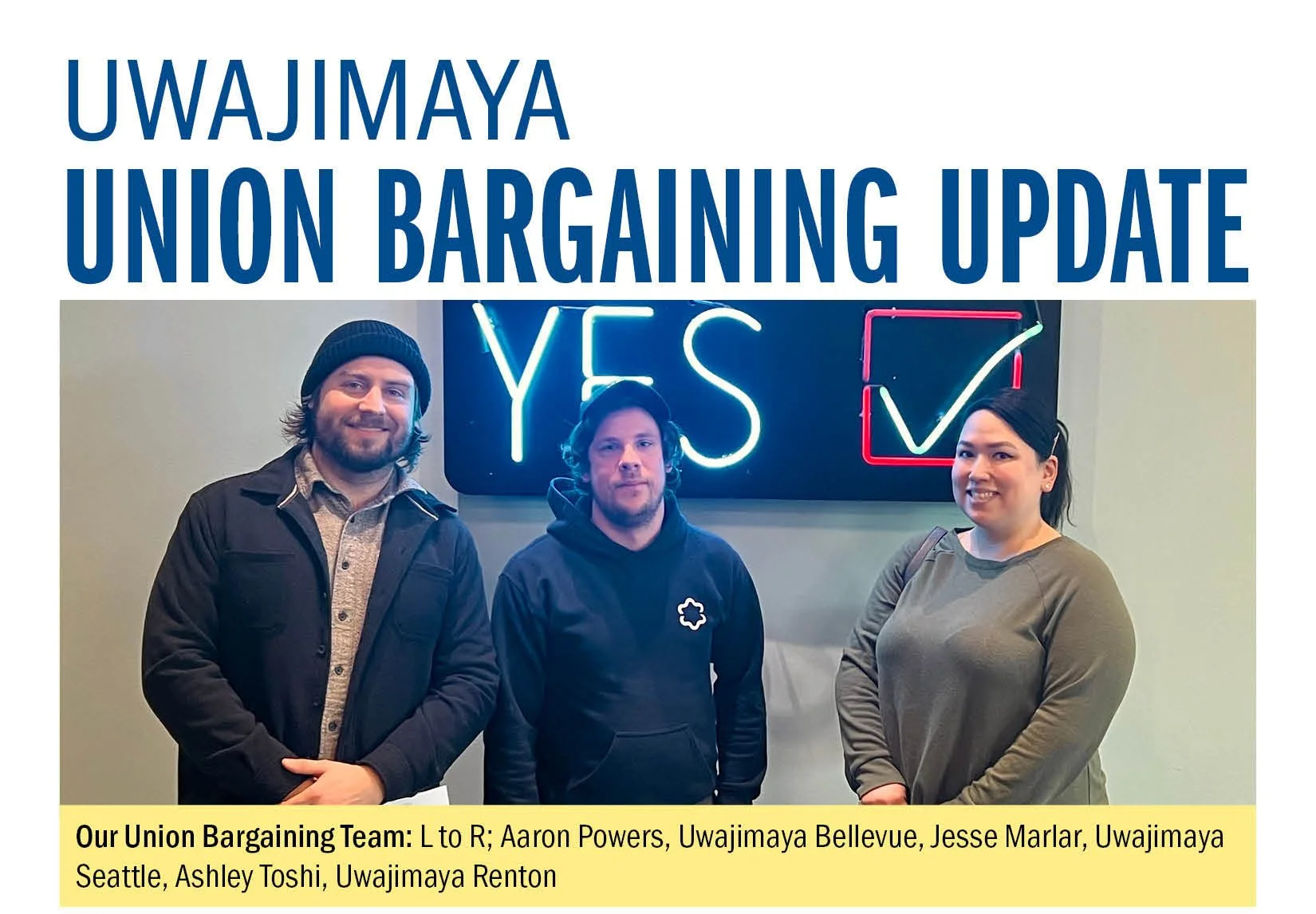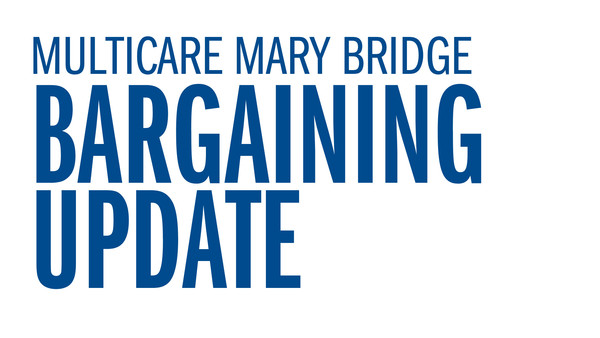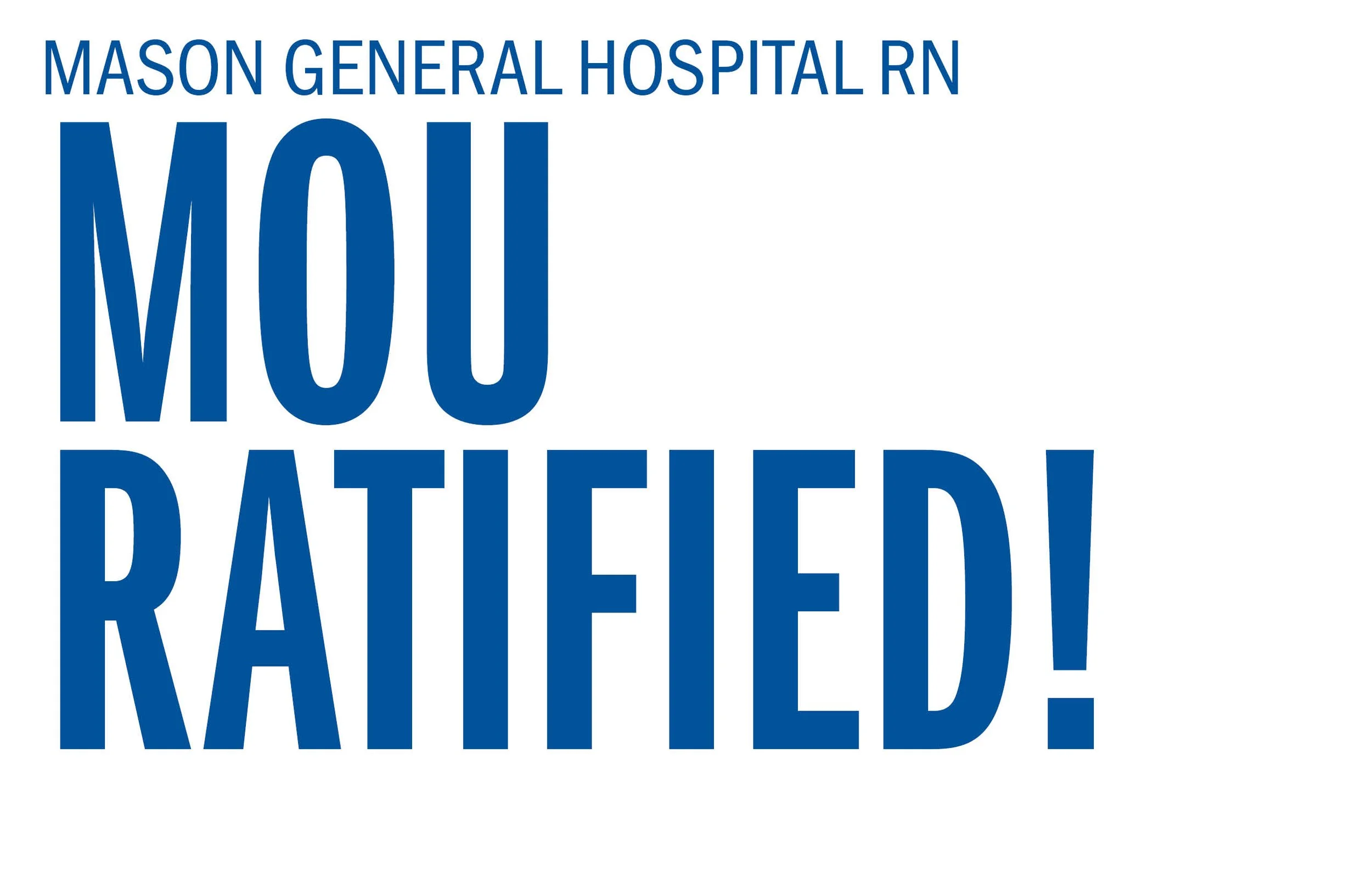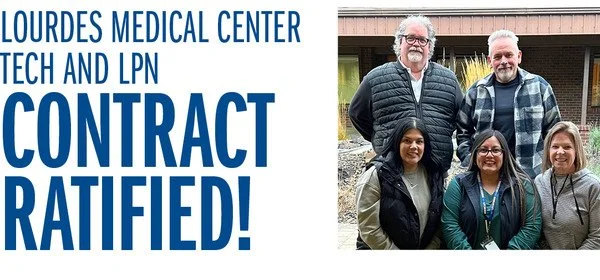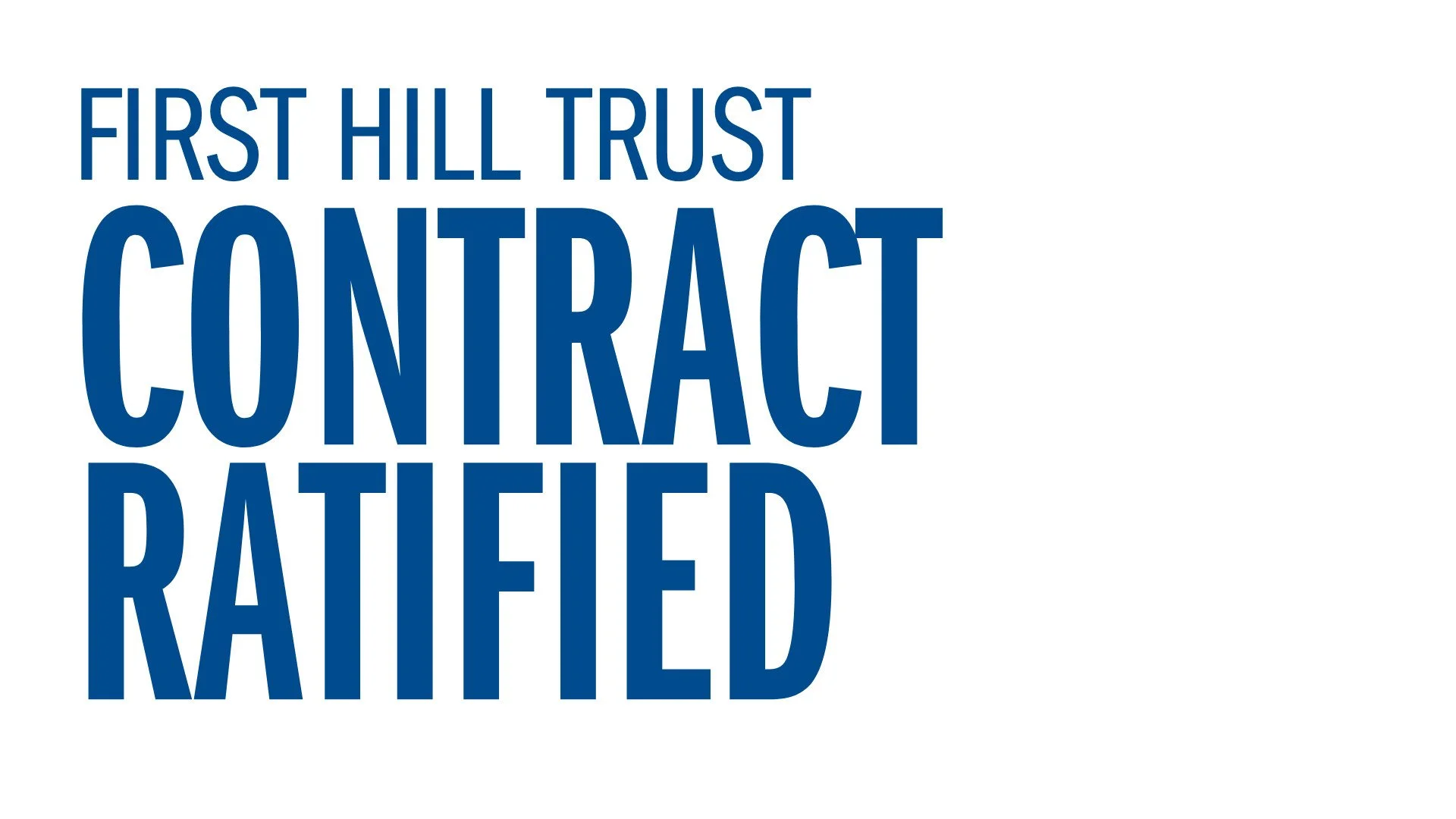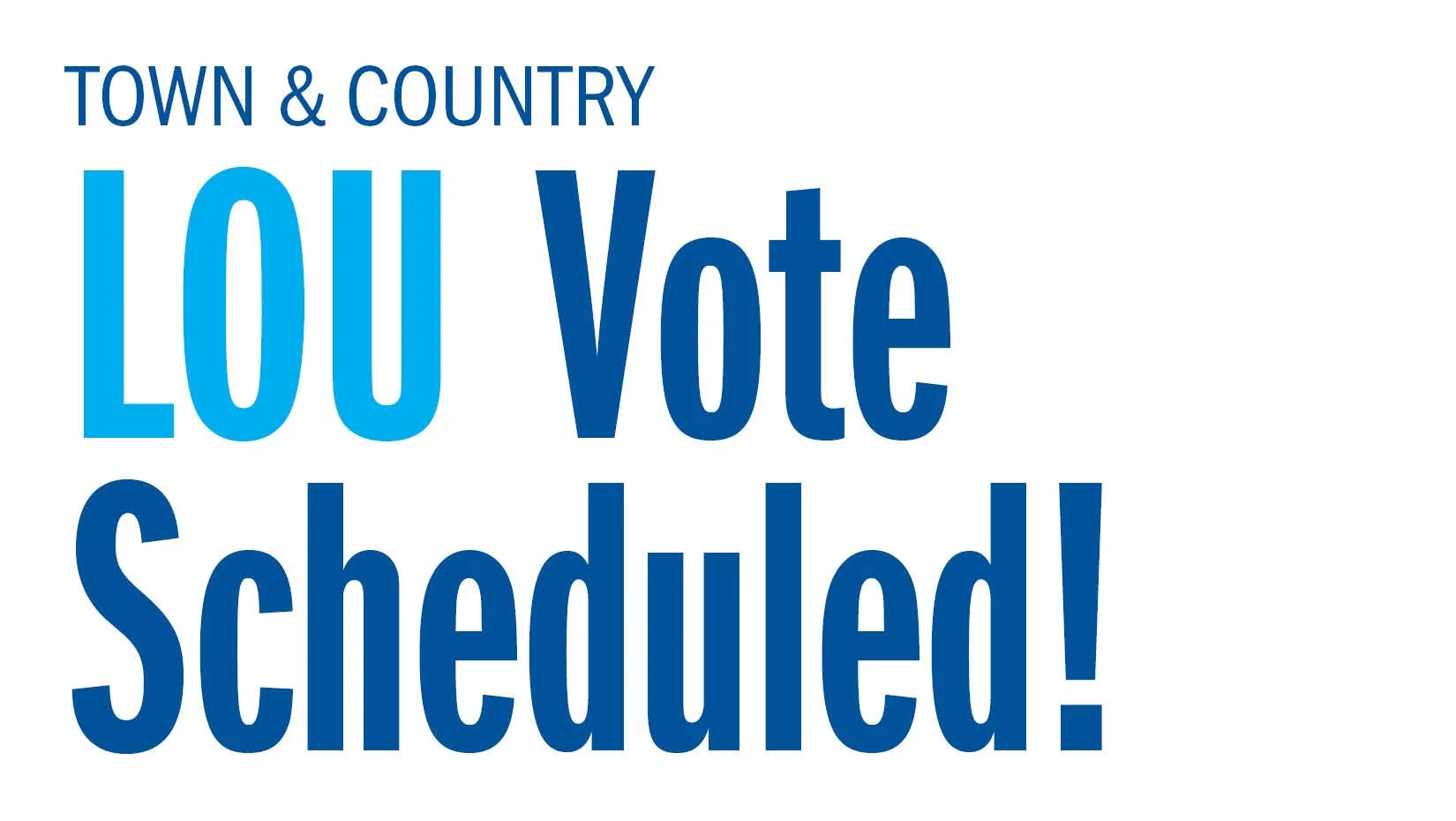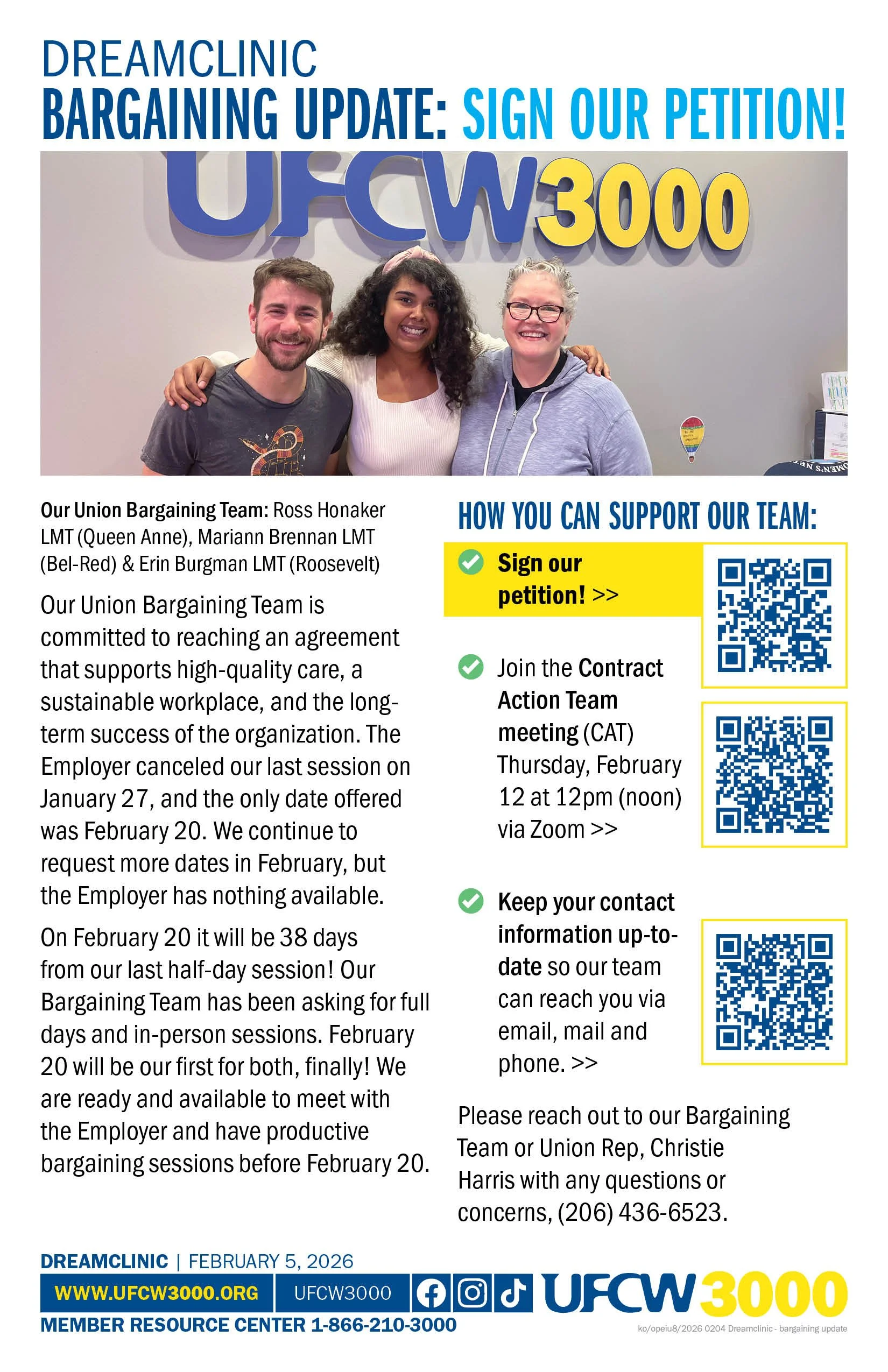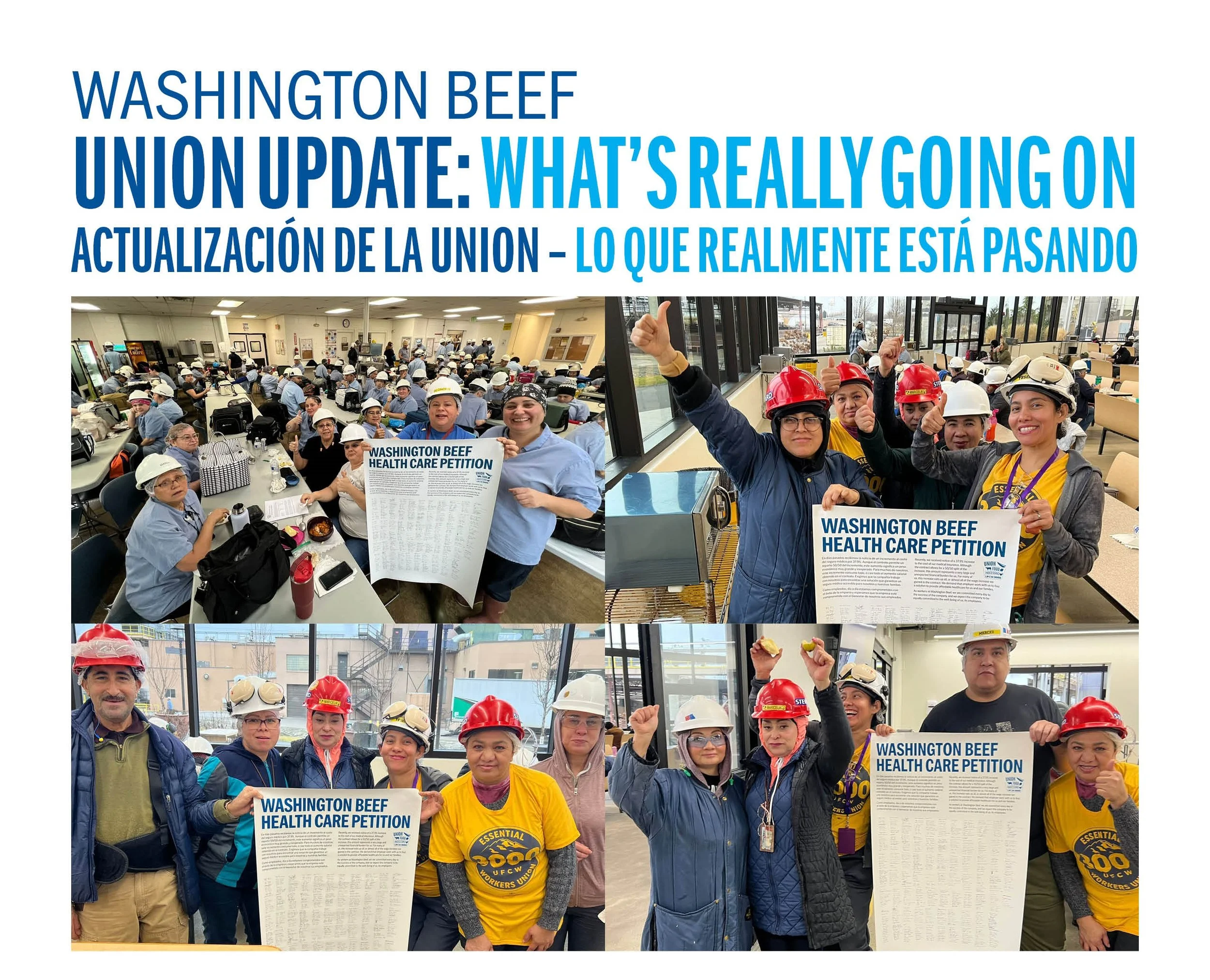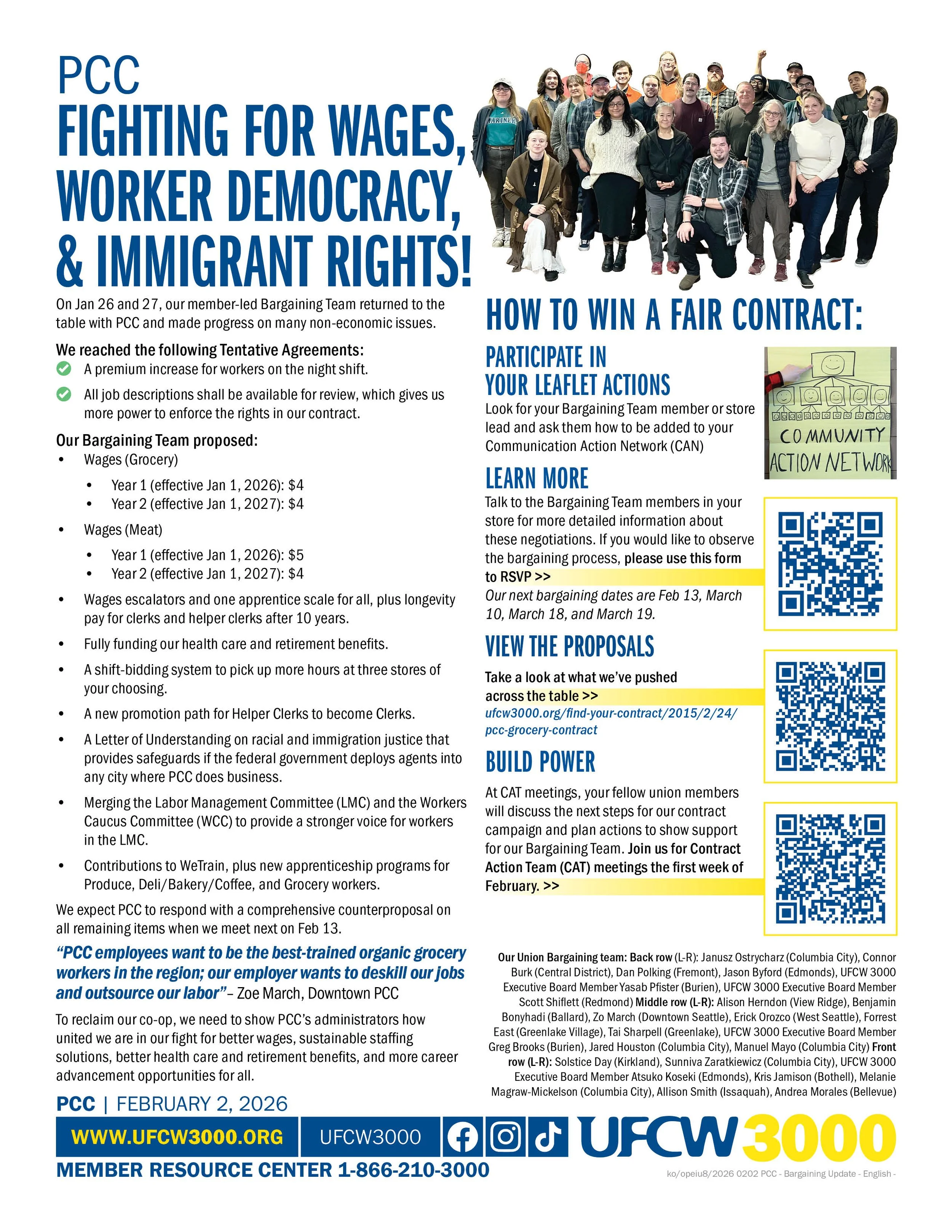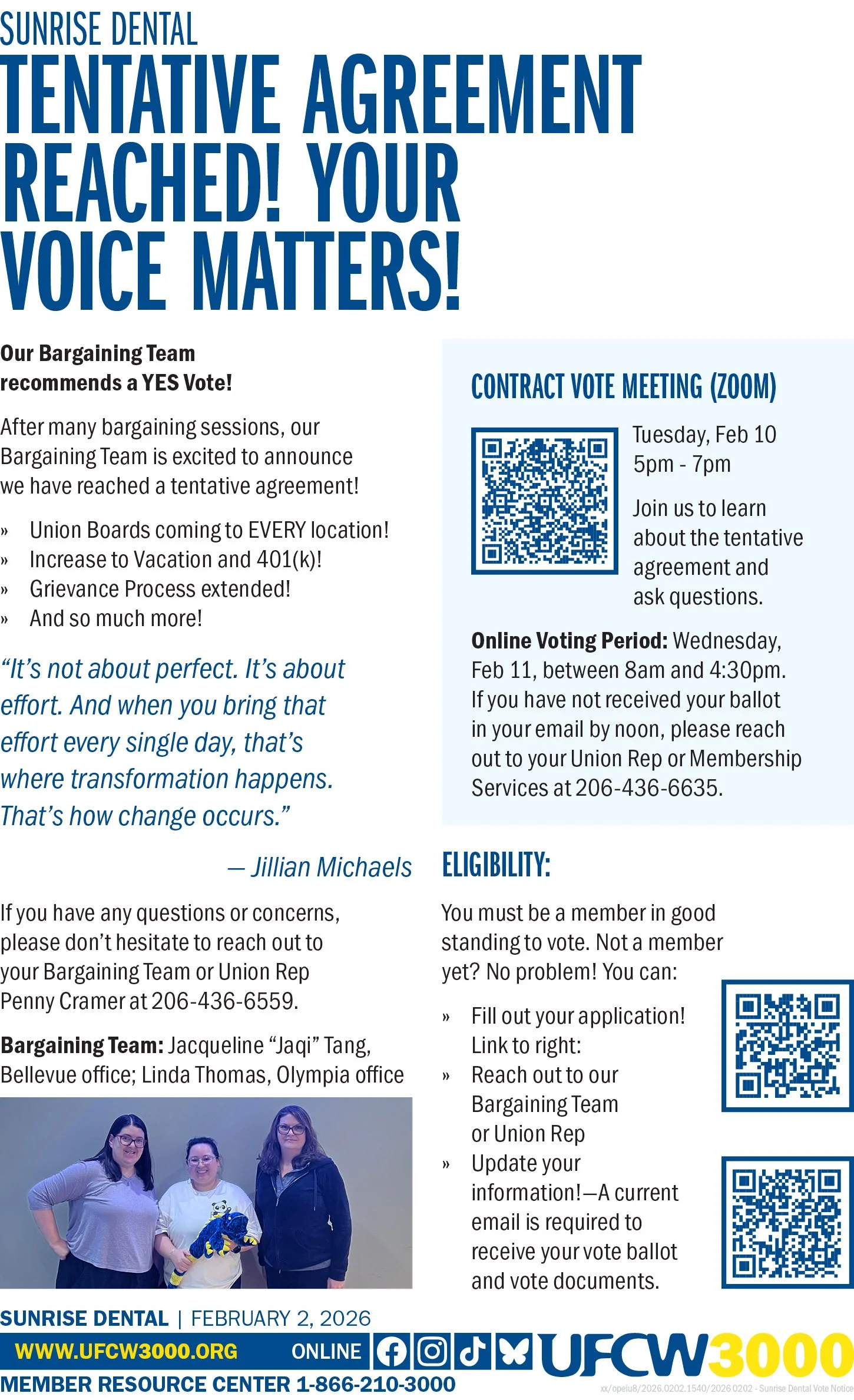Elected Leaders Stand with Grocery Workers! Open letter to Ron Sargent, Kroger Interim Chief Executive Officer
/September 1, 2025
Ron Sargent
Interim Chief Executive Officer
Chairman of the Board
The Kroger Company
1014 Vine Street
Cincinnati, OH 45202-1100
Dear Mr. Sargent,
On Labor Day, a day set aside to honor the contributions of working people, we are writing to express our deep concern and opposition to your company’s announced closure of four Fred Meyer stores in the Puget Sound region — in Lake City (Seattle), Everett, Kent, and Redmond. These closures will result in the loss of nearly 700 union jobs and will leave working-class communities with fewer options for affordable groceries, worsening food insecurity.
You have attempted to justify these closures by pointing to retail theft. The facts tell a different story. Retail theft has actually declined at the impacted stores.
The real reasons for these closures derive from your corporate choices: years of underinvestment in stores, chronic understaffing, and funneling billions of dollars to Wall Street instead of reinvesting in workers and communities.
Between 2018 and 2022 alone, you spent $9.2 billion on stock buybacks and dividends, and just last year you announced another $7.5 billion buyback. At the same time, you cut labor hours by more than 14% per store since 2019, creating a 21% staffing shortfall across your operations.
We cannot accept the narrative that these closures are inevitable. They are the result of your deliberate corporate strategy that puts short-term payouts to investors over the long-term stability of workers, shoppers, and our neighborhoods. Abandoning working-class communities in this way is unacceptable.
We stand with the nearly 700 workers whose jobs are on the line and the thousands of families who will lose access to essential groceries. As elected leaders, we will not sit idly by while you make decisions that destabilize our communities.
We call on you to:
Halt the announced store closures and immediately engage with workers, community leaders, and local governments about alternatives.
Reinvest in staffing, safety, and store upkeep instead of funneling billions into Wall Street.
Release store-level data so the public can understand the true drivers behind these decisions.
Our communities deserve better than to be abandoned by one of the nation’s largest and most profitable grocery corporations. On this Labor Day, we urge you to reverse course and put people before profits.
Sincerely,
King County Council
Council President Girmay Zahilay
Councilmember Claudia Balducci
Councilmember Rod Dembowski
Councilmember Jorge Barón
Councilmember Sarah Perry
Councilmember Teresa Mosqueda
Snohomish County Council
Councilmember Megan Dunn
Councilmember Sam Low
Lake City
State Senator Javier Valdez (LD 46)
Rep. Gerry Pollett (LD 46)
Rep. Darya Farivar (LD 46)
Seattle City Councilmember Debora Juarez
Seattle City Councilmember Alexis Mercedes Rinck
Seattle School Board Member Joe Mizrahi
Kent
Kent Councilmember Satwinder Kaur
Rep. Chris Stearns (LD 47)
Rep. Debra Entenman (LD 47)
Public Hospital District #1 Commissioner Dustin Lambro
Redmond
Redmond City Council President Vanessa Kritzker
Redmond City Council VP Jessica Forsythe
Redmond City Councilmember & State Rep. Osman Salahuddin (LD 48)
Everett
Everett Councilmember Paula Rhyne
Everett Councilmember Don Schwab
Everett Mayor Cassie Franklin
Everett Councilmember & State Rep. Mary Fosse (LD 38)
Sen. June Robinson (LD 38)
Rep. Julio Cortes (LD 48)


